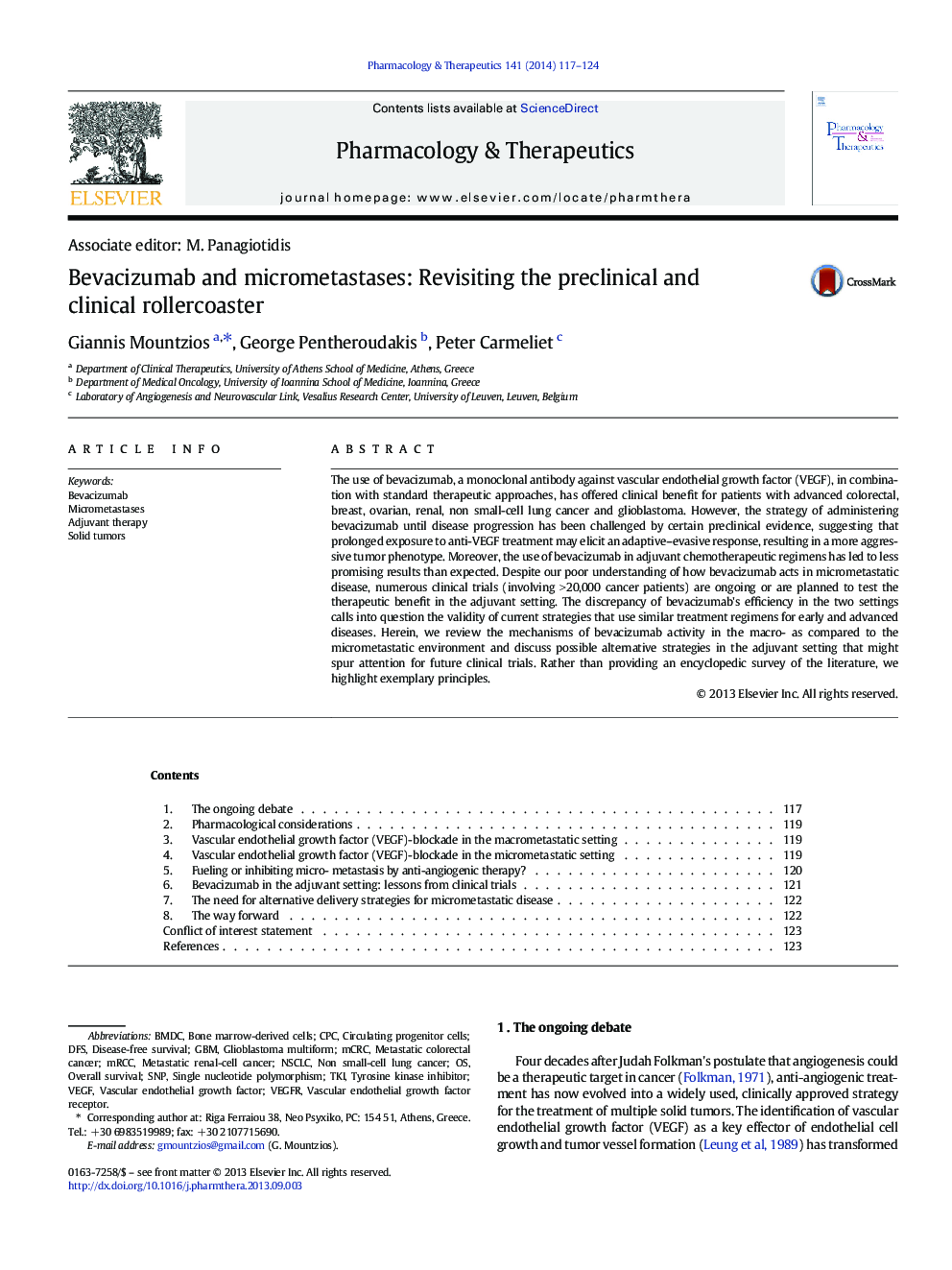| Article ID | Journal | Published Year | Pages | File Type |
|---|---|---|---|---|
| 2563142 | Pharmacology & Therapeutics | 2014 | 8 Pages |
The use of bevacizumab, a monoclonal antibody against vascular endothelial growth factor (VEGF), in combination with standard therapeutic approaches, has offered clinical benefit for patients with advanced colorectal, breast, ovarian, renal, non small-cell lung cancer and glioblastoma. However, the strategy of administering bevacizumab until disease progression has been challenged by certain preclinical evidence, suggesting that prolonged exposure to anti-VEGF treatment may elicit an adaptive–evasive response, resulting in a more aggressive tumor phenotype. Moreover, the use of bevacizumab in adjuvant chemotherapeutic regimens has led to less promising results than expected. Despite our poor understanding of how bevacizumab acts in micrometastatic disease, numerous clinical trials (involving >20,000 cancer patients) are ongoing or are planned to test the therapeutic benefit in the adjuvant setting. The discrepancy of bevacizumab's efficiency in the two settings calls into question the validity of current strategies that use similar treatment regimens for early and advanced diseases. Herein, we review the mechanisms of bevacizumab activity in the macro- as compared to the micrometastatic environment and discuss possible alternative strategies in the adjuvant setting that might spur attention for future clinical trials. Rather than providing an encyclopedic survey of the literature, we highlight exemplary principles.
